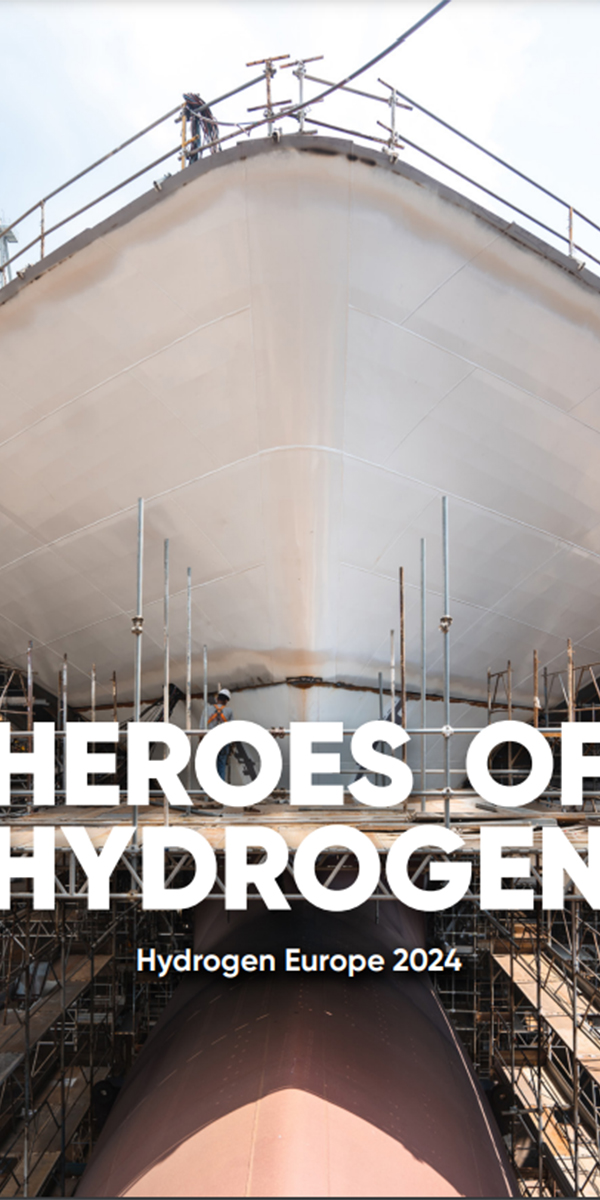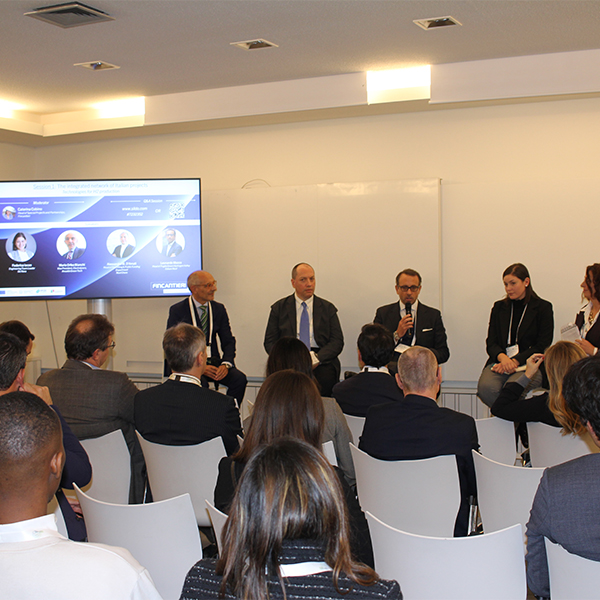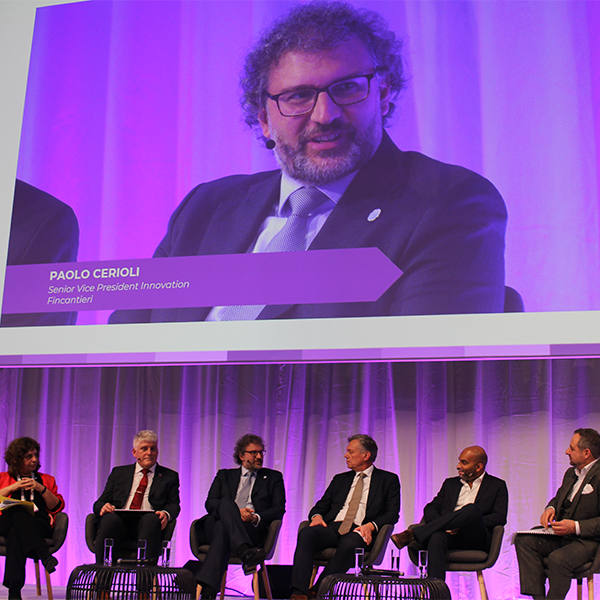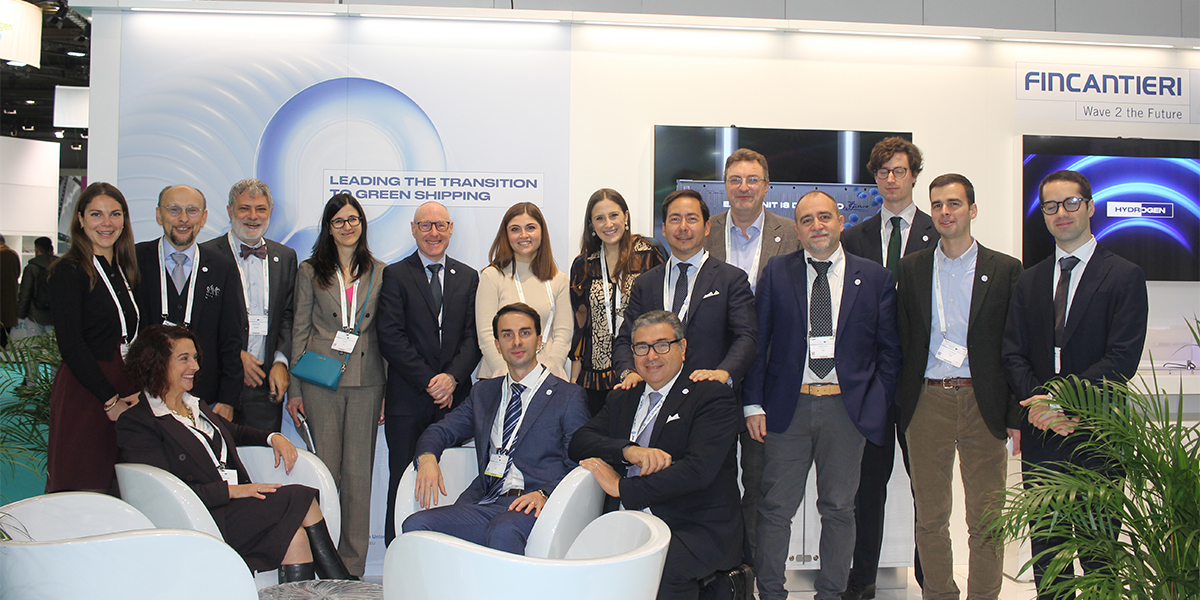

Wave 2 the Future
The Wave 2 the Future project from the Fincantieri Group aims to enable the use of hydrogen in the maritime sector.
Wave 2 the Future is part of the Important Projects of Common European Interest (IPCEI) on Hydrogen, a European initiative designed to develop strategic value chain ecosystems. Specifically, IPCEI Hydrogen Hy2Tech aims to promote innovation and environmental transition by making green hydrogen and the necessary technologies available to exploit its decarbonization potential.
There are various green technologies available, offering significant potential to reduce emissions in the maritime sector. However, no single technology currently meets all the necessary requirements simultaneously, such as volumetric efficiency, availability, and readiness for onboard installation. Furthermore, to be viable for ships, green fuels must be readily available in ports and be economically sustainable.
For these reasons, it's essential to develop a combination of green fuels and technologies that can meet the operational needs of the maritime industry.
Hydrogen, as a potential alternative fuel, stands out for producing zero polluting emissions.
Wave2theFuture is funded by the European Union – NextGenerationEU and financially supported by the Italian Ministero delle Imprese e del Made in Italy. The foreseen grant is part of the National Recovery and Resilience Plan (PNRR) initiative.


IPCEIs
IPCEIs are strategically significant projects identified by the European Commission in crucial sectors like hydrogen. These initiatives aim to foster innovation and competitiveness within the European Union by encouraging Member States to submit proposals for projects worthy of funding.


Wave 2 the Future aims to exploit hydrogen as fuel for cruise ships and develop hydrogen-powered technologies for onboard application.
Additionally, the project contributes to defining regulations for the use of hydrogen in the maritime sector, ensuring safe technological solutions.
Wave 2 the Future is divided into three integrated initiatives (Work Packages) that involve the mobility sectors and the hydrogen system stakeholder value chain.
1. WP1
Work Package 1 aims to contribute to the maritime sector's energy transition by developing technologies for zero-emission onboard power generation.
Developed by our subsidiary, Isotta Fraschini Motori in Bari, WP1's goal is to create an integrated solution. This solution will combine an internal combustion engine and a fuel cell system, both powered 100% by hydrogen, with batteries and potentially PV panels. The purpose is to create green power generation systems applicable to the widest range of ships.
The final outcome will be the definition and testing of the first prototype of this new combined power generation system, called the Hybrid Green Power Generation System (HGPGS).
2. WP2
Work Package 2 aims to develop a combined cycle gas turbine (G-CCGT) system for maritime applications, composed by gas and steam turbines. This system is designed to satisfy the entire power needs of a vessel, using hydrogen as fuel.
The objective of WP2, developed by our Mechanical Systems and Components Division, is to validate the onboard applicability of a combined cycle powered by up to 100% hydrogen. This system requires the development of the overall technical solution, as well as the construction and testing of its critical components.
The gas turbine combined cycle is a valuable technology due to its high energy density. Furthermore, the gas turbine is the most advanced system for utilizing hydrogen. This combined cycle is also particularly well-suited for long-haul maritime sectors, such as cargo ships or long-distance ferries.
3. WP3
Work Package 3 involves design, construction, and operational demonstration of two prototypes for maritime power generation technologies:
• A power generation system consisting of a hybrid plant that combines engines and Solid Oxide Fuel Cells (SOFCs). These SOFCs can be powered by LNG, including synthetic or biogenic LNG, with a planned development for direct hydrogen use. When fueled by synthetic or biogenic natural gas, SOFCs achieve net-zero operation; when powered by hydrogen, they are zero-emission.
• A power generation system comprising a hybrid plant that combines traditional engines and Proton Exchange Membrane (PEM) fuel cells powered by hydrogen. This system is designed for zero-emission operation in ports and while navigating in protected areas.


Hy2Tech is the first wave of IPCEI projects, specifically dedicated to developing new hydrogen-related technologies across the entire value chain. It's structured into four technical fields (TFs):
TF1: Large-scale hydrogen production through the development of new technologies.
TF2: The production of fuel cells.
TF3: The development of new storage, transport, and distribution technologies.
TF4: The development of end-user applications (including maritime mobility).
Events
Hydrogen Week 2024
WATCH THE VIDEO
Fincantieri participated in Hydrogen Week 2024, held from November 18th to 22nd in Brussels. This event, organized by the European Commission, Hydrogen Europe, and the Clean Hydrogen Partnership, is the leading exhibition dedicated to the hydrogen value chain.
Hydrogen Week provided a significant opportunity to present the Wave 2 The Future project to the public. This initiative, supported by Important Projects of Common European Interest (IPCEI), aims to contribute to a sustainable future in maritime transport.
Furthermore, Wave 2 The Future was featured in the Heroes of Hydrogen publication, an annual photographic initiative promoted by Hydrogen Europe to highlight pioneers and innovators in the hydrogen sector.
Link to Heroes of Hydrogen:
https://hydrogeneurope.eu/h2-talks/heroes-of-h2/
https://hydrogeneurope.eu/wp-content/uploads/2024/11/HeroesOfH2_Photo_Book_HE_2024_DIGITAL_FINAL.pdf
Contacts





